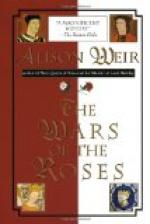But it would not do to act rashly in an encounter with four stalwart men, all armed to the teeth, and plainly well used to the practice of arms. The youth saw that he must husband his strength and use his opportunity with every care. His best chance lay in taking the party by surprise.
He examined his weapons with a keen eye. He too possessed one of the handguns of the period, and was a good marksman to boot. He had, too—and glad enough was he of it at that moment—the deadly guisarme, that old-fashioned weapon that combined a spear and scythe, and was used with horrible effect in the charges of the day. Then there was the short battle-axe, slung across his saddlebow, which at close quarters would be a formidable weapon, and the poniard in his belt had in its time done deadly work before this.
But although he had plenty of weapons for offence, he had not much defensive armour upon him. Only a cloth cap protected his head, and although his jerkin was of the tough leather which often defied the thrust of a dagger almost as successfully as mail, it might not prove a defence against the combined attack of a number of enemies; and his legs were unprotected save by the long leather riding boots laced up the front, and ornamented with silken tassels, now much faded and stained.
Altogether, he appeared hardly equipped for so desperate an encounter as the one that lay before him; but it was plain that he did not on that account shrink from it. His appearance upon the scene had not been observed by any of the robbers—for such they plainly were—and he was thus able to take his time and weigh his chances carefully.
The girl was suffering no injury from her captors; but what her fate might be if rescue did not come was what no one could say. It was plain that it was the desire of the leader of the band to possess her as a captive. It was he who was the leading spirit in the attack. He was just as determined to carry her off as he was wishful to accomplish the capture without inflicting injury.
The stripling astride the good warhorse—who seemed to scent battle in the air, and stood perfectly still, quivering with excitement—unslung his handgun from his shoulder, and levelled it at the leader of the band. The next instant a sharp report rang through the silent forest. The robber chief flung up his hands with a stifled cry and sank down upon the ground; whilst the other men, astonished beyond measure at this sudden attack from they knew not what quarter, ceased to heed their prisoner, and turned round with loud execrations, laying their hands upon their weapons.
But before they had time to draw these the horseman was upon them. He had his battle-axe in his hand—a light small axe, but one of exquisite temper and workmanship—and dashing through the group, he dealt such a blow with it upon the head of one of the ruffians as cleft his skull in two; and the man dropped with never a groan, a dead corpse upon the ground.




